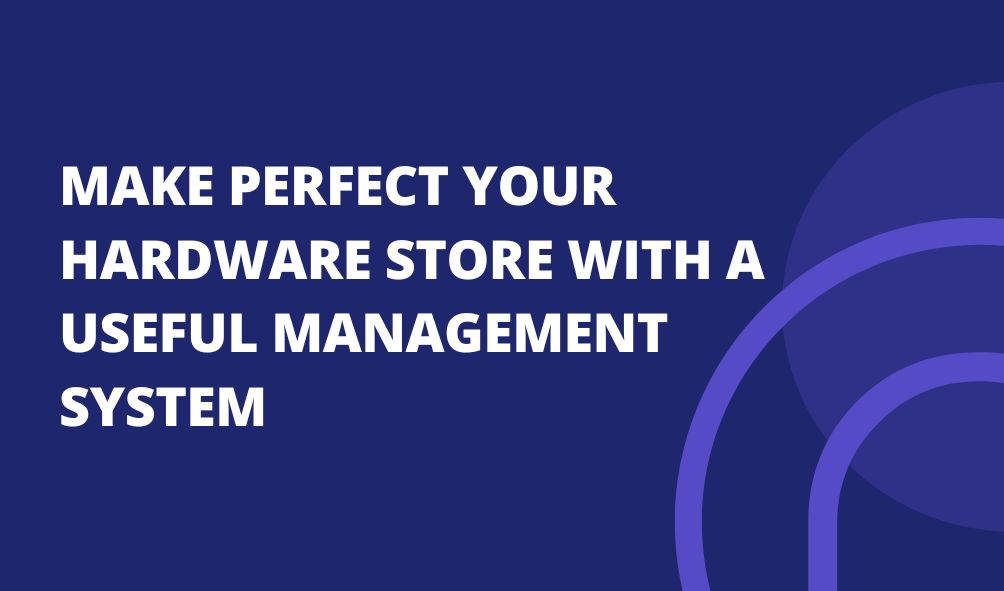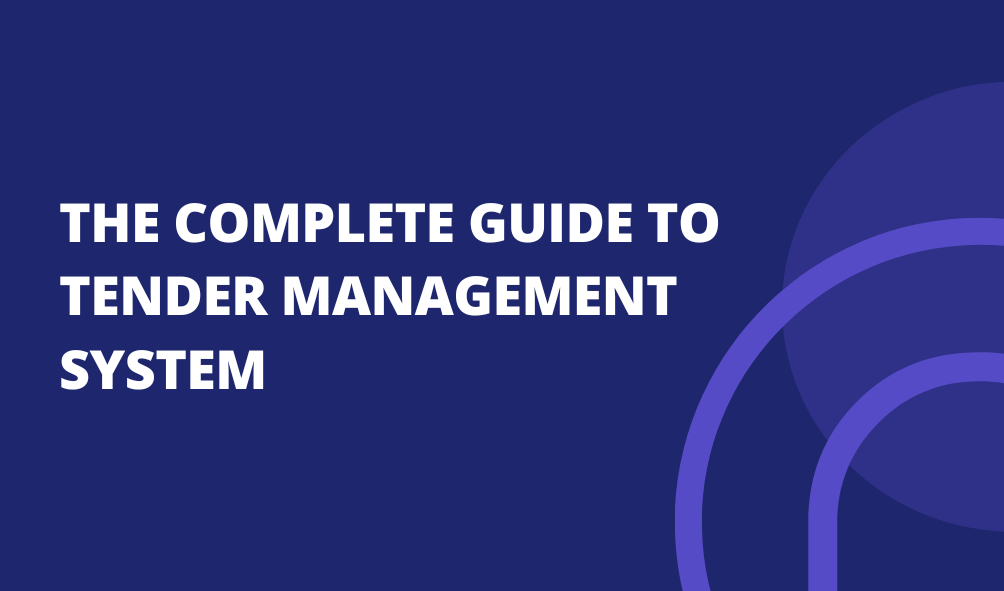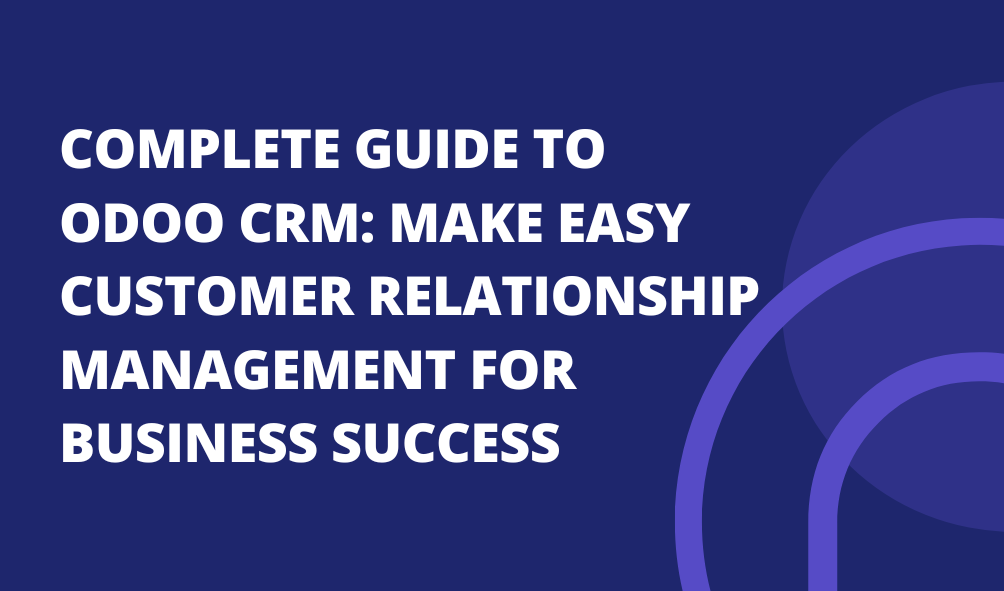The Ultimate Guide to Project Management Software: Features, Benefits, and Future Trends
Have you ever used project management software before? Or are you still managing tasks manually?
Don't worry if you're unfamiliar with it—we're here to guide you through everything you need to know.
Managing multiple projects, tight deadlines, and diverse teams can quickly become overwhelming. Without the right system, businesses often struggle with missed deadlines, poor collaboration, and inefficient workflows.
This is where project management software (PMS) becomes a game-changer. It helps teams organize tasks, track progress, and improve overall efficiency. Whether you're a startup or an established company, investing in the right PMS ensures smooth project execution and better team coordination.
Are you ready to take your project management to the next level? Let’s dive in!
What You’ll Learn in This Guide
This complete guide will cover:
- What is a Project Management System (PMS)?
- Key features of a good project management software
- Benefits of using a project tracking system
- How to choose the best project management tools for your business
- Future trends in project management software
By the end of this blog, you’ll understand how project management software can improve productivity, improve team collaboration, and help deliver successful projects.
Let’s dive in!
What is Project Management Software(PMS)?
A Project Management System (PMS) is a software solution designed to help teams plan, execute, and track projects efficiently. It serves as a centralized platform where teams can manage tasks, collaborate, track deadlines, and store essential project documents.
Whether you are handling a small team or managing large-scale projects, using PMS can streamline workflows and improve productivity.
Without a structured project management system, businesses often face missed deadlines, poor communication, and inefficient workflows. Teams struggle to keep track of tasks, causing delays and confusion.
A good PMS eliminates these issues by providing tools for task assignment, progress tracking, document sharing, and real-time collaboration. With everything in one place, teams can stay organized and work more efficiently.
A project management system offers various functionalities to enhance project efficiency. It enables task planning, where project managers can assign tasks, set priorities, and establish deadlines. A progress-tracking system provides real-time updates, allowing managers to monitor project milestones and identify potential bottlenecks. Additionally, a project document management feature ensures that all important files and resources are stored securely and can be accessed when needed.
Implementing an effective project management system can transform how teams work. It improves communication, improves workflow efficiency, and ensures that projects are completed on time.
As businesses continue to adopt digital tools, having a robust project tracking system is no longer optional—it’s essential for long-term success.
Key Features of a Project Management System
A project management system is more than just a tool for organizing tasks—it’s a comprehensive solution that helps businesses plan, track, and execute projects effectively. The best project management software comes equipped with multiple features designed to enhance collaboration, automate workflows, and ensure timely project completion.
Below are the key features that make a good project management software indispensable for businesses.
1. Task and Project Planning
One of the most essential features of any project management software is its ability to help teams create, assign, and manage tasks efficiently. Users can break projects into smaller tasks and subtasks, set deadlines, and track progress. With built-in task management software, teams can ensure that work is completed on time and that responsibilities are clearly defined.
2. Project Tracking and Progress Monitoring
A robust project tracking system allows managers to monitor project milestones, deadlines, and deliverables in real time. Features like Gantt charts, Kanban boards, and timeline views provide a clear visual representation of a project's progress. By using progress-tracking software, businesses can easily identify bottlenecks and reallocate resources to keep projects on track.
3. Team Collaboration and Communication
Successful projects rely on effective communication. A good project management software includes collaboration tools such as team messaging, shared calendars, discussion boards, and task comments. These features help team members stay informed and aligned, reducing miscommunication and improving overall productivity.
4. Document and File Management
A project document management system ensures that all project-related files, documents, and resources are stored securely in one location. Instead of searching through emails or multiple platforms, team members can easily upload, share, and access documents within the project management software.
This reduces confusion and ensures that the most updated versions of files are always available.
5. Automated Notifications and Alerts
To keep teams on track, the best project management software includes automated alerts for task deadlines, overdue assignments, project updates, and milestone achievements.
These notifications help prevent missed deadlines and ensure that all team members are aware of their responsibilities.
6. Customization and Scalability
Every business operates differently, which is why customization is an important feature in project management software and tools. Teams can add custom fields, workflows, and automation rules to align with their unique project management needs.
Additionally, scalable project planning software can grow with a company, ensuring that the system remains effective as projects increase in complexity.
7. Reporting and Analytics
Data-driven decision-making is crucial for project success. Advanced project management information systems provide detailed reports, performance metrics, and analytics dashboards.
These insights help managers evaluate project performance, track resource allocation, and identify areas for improvement.
8. Multi-Device Accessibility and Cloud Integration
Modern businesses need flexibility. Many online project management systems offer cloud-based access, mobile apps, and third-party integrations with tools like Slack, Google Drive, and Microsoft Teams.
This provides teams can collaborate seamlessly, whether working remotely or in-office.
9. User Role Management and Permissions
Security is a top priority in project management. The best project management system allows administrators to set user roles, define access levels, and control data visibility.
This prevents unauthorized access and ensures that sensitive project data is protected.
10. Budgeting and Resource Allocation
Managing finances and resources effectively is key to project success. Some project management software and tools come with budget tracking features, expense management, and resource allocation tools. This provides that projects stay within budget and that resources are optimally utilized.
With these powerful features, a good project management software can simplify complex workflows, improve efficiency, and drive project success.
Choosing the best project management software depends on a company’s unique needs, but incorporating these key features is essential for any growing business.
Benefits of Using a Project Management System
Implementing a project management system can transform how businesses plan, execute, and track their projects. Whether you’re managing a small team or overseeing complex projects, using the best project management software can enhance efficiency, improve collaboration, and streamline operations.
Below are the key benefits of project management software and why businesses should adopt it.
1. Improved Project Planning and Organization
One of the biggest benefits of a project management system is its ability to organize projects efficiently. With project planning software, businesses can define project goals, set timelines, allocate resources, and assign tasks systematically.
This structured approach ensures that every team member understands their responsibilities, reducing confusion and delays.
2. Enhanced Team Collaboration and Communication
A project management tool fosters seamless communication among team members. Instead of relying on scattered emails or multiple messaging platforms, teams can collaborate within a centralized project management software.
Features like real-time messaging, shared workspaces, and task comments improve coordination and keep everyone on the same page.
3. Increased Productivity and Efficiency
Using a good project management software eliminates manual tracking and redundant workflows, allowing teams to focus on critical tasks. Task management software automates assignments, sends deadline reminders, and tracks progress, ensuring that projects move forward efficiently.
Businesses that implement the best project management tools for startups or enterprises often experience higher productivity and better time management.
4. Real-Time Project Tracking and Transparency
With a project tracking system, project managers can monitor progress in real time. Features like Gantt charts, Kanban boards, and detailed progress reports provide clear insights into project timelines, bottlenecks, and pending tasks.
This level of transparency helps teams stay proactive and address potential issues before they escalate.
5. Better Resource Management
Managing resources effectively is crucial for project success. A project management information system helps businesses allocate resources efficiently, ensuring that workloads are balanced and team members are not overburdened.
With real-time data on task distribution and project status, businesses can optimize resource usage and avoid unnecessary expenses.
6. Timely Delivery of Projects
Deadlines are critical in project management. A project planning software ensures that teams adhere to schedules, set realistic deadlines, and track milestones effectively.
Automated alerts and overdue notifications keep everyone accountable, reducing the chances of project delays.
7. Centralized Project Document Management
A project document management system provides a secure, organized space for storing all project-related documents. Teams can easily upload, share, and retrieve files, ensuring that important data is always accessible.
This feature is particularly beneficial for businesses handling multiple projects, as it prevents document loss and miscommunication.
8. Data-Driven Decision Making
Modern project management software and tools come with advanced reporting and analytics. Businesses can generate detailed reports on project performance, team efficiency, and budget usage.
With this data, managers can make informed decisions, improve processes, and enhance overall project execution.
9. Scalability and Customization
As businesses grow, their project management needs evolve. The best project management software offers scalability and customization, allowing organizations to add features, integrate third-party tools, and adjust workflows as needed.
Whether you're a startup or a large enterprise, a flexible project management tool ensures long-term usability.
10. Competitive Advantage
In today’s fast-paced business environment, companies that adopt advanced project management software gain a competitive edge.
By optimizing workflows, reducing inefficiencies, and improving project outcomes, businesses can deliver higher-quality results and stay ahead of competitors.
How to Choose the Best Project Management Software
Selecting the best project management software for your business requires careful consideration of various factors. The first step is identifying your business needs and goals. If your team requires simple task management software or a comprehensive project tracking system with advanced reporting and analytics, defining these requirements will help you find the right solution.
Additionally, ease of use is essential—an intuitive interface, drag-and-drop task management, and customizable dashboards can ensure smooth adoption. Core features such as task planning, collaboration tools, progress tracking software, document management, and automated notifications play a crucial role in enhancing team efficiency.
Integrations with third-party tools like Slack, Google Drive, and QuickBooks allow seamless workflows, ensuring that your project management system fits within your existing business processes.
Beyond features, scalability and security are vital factors in choosing the right project management tool. A good project management software should adapt to business growth, offering custom workflows, user role management, and flexible templates. Security features such as end-to-end encryption, data backups, and access control are critical for protecting sensitive project information.
Additionally, pricing is an important consideration—many tools offer free trials or basic versions, while premium plans provide advanced capabilities. Reading user reviews on platforms like G2, Capterra, or Trustpilot can provide valuable insights before making a decision. Ultimately, investing in the right project management software will improve productivity, streamline operations, and contribute to long-term project success.
Future Trends in Project Management Software
The future of project management software is evolving rapidly, driven by advancements in technology and changing workplace dynamics. One of the biggest trends is the increasing adoption of AI-powered project management tools, which help automate task assignments, predict project risks, and provide data-driven insights.
AI-driven project tracking systems can analyze past performance to optimize workflows and prevent delays.
Additionally, automation in task management software is improving efficiency by reducing manual work and streamlining repetitive processes.
Another major shift is the rise of cloud-based and remote project management solutions. As businesses continue to assume remote and hybrid work models, the demand for online project management systems with real-time collaboration features is growing. Tools with mobile accessibility, seamless third-party integrations, and enhanced security protocols are becoming essential for businesses of all sizes.
Moreover, blockchain technology and advanced encryption are being explored to improve data security in project document management.
With these innovations, project management software is set to become more intelligent,connected, and adaptable to the changing needs of modern businesses.
Conclusion: Making the Right Choice
Choosing the best project management tool requires careful consideration of your business needs, feature requirements, comfort of use, and budget. Whether you need a project tracking system, progress tracking software, or a full-scale project management system, selecting the right tool will increase efficiency, improve team collaboration, and ensure project success.



